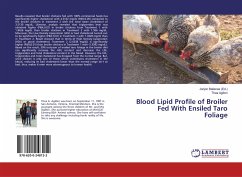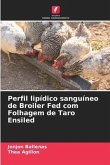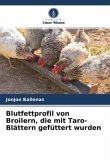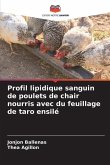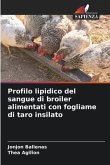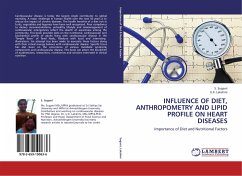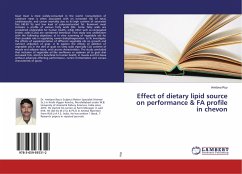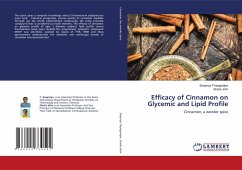Results revealed that broiler chickens fed with 100% commercial feeds has significantly higher cholesterol with 4.0132 mg/dL (P<0.05) compared to the broiler chickens in treatment 2 with the total mean cholesterol of 3.5130 mg/dL. Likewise, analysis revealed that triglycerides level was obtained higher (P<0.01) in broiler chickens from Treatment 1 with 1.8426 mg/dL than broiler chickens in Treatment 2 with 1.506 mg/dL. Moreover, the Low Density Lipoprotein (LDL) or bad cholesterol turned out to be significantly higher (P<0.01) in Treatment 1 with 1.0328 mg/dL than in Treatment 2. Result showed that in terms of High Density Lipoprotein (HDL) or good cholesterol, Treatment 2 (2.6338 mg/dL) is significantly higher (P<0.01) than broiler chickens in Treatment 1 with (1.9392 mg/dL). Based on the result, 30% inclusion of ensiled taro foliage in the broiler diet can significantly increase the HDL content and decrease the LDL, triglycerides and total cholesterol content in theblood. However, the LDL, triglycerides and total cholesterol has dropped from the normal range. But, since chicken is only one of those which contributes cholesterol in the blood, reducing its bad cholesterol lower than the normal range isn't so bad, thus, makes it even more advantageous to human health.
Bitte wählen Sie Ihr Anliegen aus.
Rechnungen
Retourenschein anfordern
Bestellstatus
Storno

